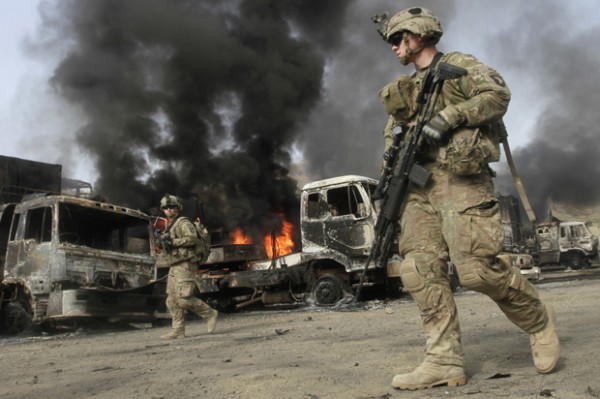War produces many unforeseen consequences. Not all of these “consequences” are detected – let alone understood – at the time they occur, but the long term effect can be quite unsettling to society for many years after a “war” has ended.
While it has long been known that trauma occurring in combat can create radical changes in a person’s behavior, it has only been in the last few years that behavioral scientists and those in the medical profession have actively been identifying and studying the effects of Post Traumatic Stress (commonly referred to as “PTSD” for combat veterans from our wars in Afghanistan and Iraq.
In fact, in an article published in the Journal of Military and Veterans’ Health, they report that:
Military personnel experiencing combat in Iraq and Afghanistan are suffering wounds that are much greater in number and variety than those endured by veterans of earlier wars. This circumstance is due, in part, to advances in medical science and technology. Soldiers, sailors and marines who suffered such severe wounds in earlier wars simply died because they were beyond the reach of then contemporary medicine or technology.
In addition, in earlier wars, Post Traumatic Stress Syndrome was not even given a name, let alone recognized as a valid form of war-related casualty. Now, PTSD is thoroughly documented and a whole array of treatments are available to veterans of the Iraqi and Afghan Wars. Friedman (2006) summarized PTSD symptoms as being typified by numbing, evasion, hyper-vigilance, and re-experiencing of disturbing incidents via flashbacks. Veterans and other non-combatant participants in war who have outlived traumatic experiences typically suffer from PTSD. Read more . . .
Given their own particular situation, many reading this article may disagree with the premise it is only recently that PTSD is now recognized as a “valid form of war-related casualty.” Nevertheless, the public at large has little knowledge of the terrible toll that PTSD and TBI have on our Veterans and their loved ones.
As I reported last week in a column entitled “What the Greeks Knew About PTSD,” I highlighted some of the current literature that casts light on the symptoms of PTSD and possible therapy programs.
If the general public “buys into the silver bullet” therapy afforded by self-serving soundbites, you can rest assured that our politicians and administrators of VA and DoD programs will most likely conclude that they have the problem well in hand.
Quite the contrary is true, considering the number of Veterans suffering from PTSD and TBI demanding access to new treatment methodologies. Sadly, coverage for inexpensive treatments such as Hyperbaric Oxygen (“HBOT”) and “service dogs” are currently being denied Veterans because the VA has yet to prove their efficacy.
Fortunately, independent organizations have seized the initiative and are now actively providing alternative therapy programs to help Veterans and their loved ones cope with the terrible consequences of PTSD.
The camaraderie of military Veterans is, in my opinion, critical in building self-sustaining communities of trust as Veterans seek to reclaim their lives.
We are still a long way to being able to provide our brave Veterans and active duty personnel the support they deserve. However, I sense that there is growing frustration by Veterans and the public at large that our political institutions – particularly the VA – lack the commitment to bring about meaningful change.
Frankly, if our politicians are willing to commit brave young men and women into harm’s way, the least we can expect from our elected leaders is the commitment that they will be properly cared for when they return home. Other than sound-bites, this commitment is currently lacking.
ShareAPR
2016


About the Author:
Vietnam vintage US Army officer who honors the brave men and women who serve our country.